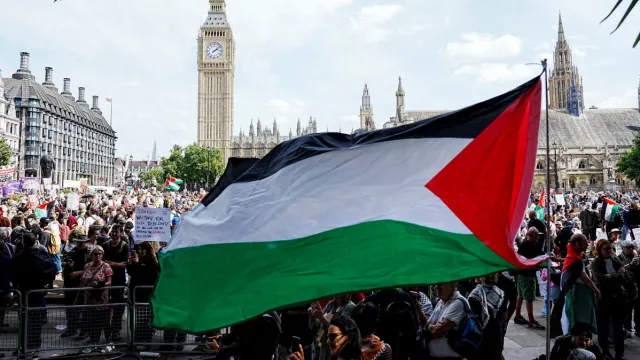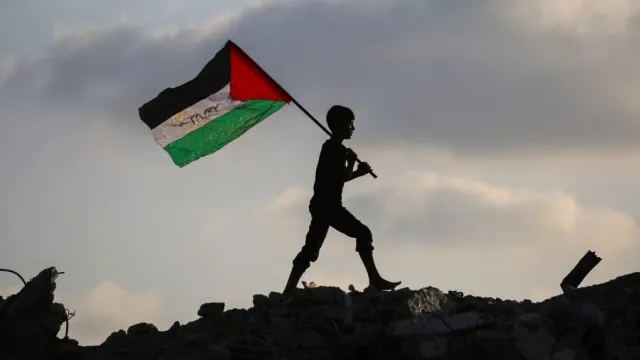Source: The i Paper
With Britain’s recognition of the Palestinian state, few in my community, or in Israel, have heard the rest of the UN’s New York Declaration and its attempt to revive the two-state solution. Its detail, most of which is quite close to Israel’s stated conditions for ending the war, has been lost amid the fierce opposition to the recognition of the state of Palestine.
On the face of it, this lack of welcome is strange, as a majority of the Jewish community here has for many years supported a two-state solution, as does the Board of Deputies of British Jews. This harks back to the Nobel Peace Prize-winning “Oslo process” era of the 1990s, before its progress was abruptly – and, as it turned out, definitively – disrupted by the bullet that killed Israeli premier Yitzhak Rabin in 1995. Few moments in history have been so decisive.
There is of course an alternative to two states, and that is one “Greater Israel” state. Whilst supporters of the two states have complained about lack of progress for decades, those for “Greater Israel” have been relentlessly pursuing their cause on the ground.
They have been very effective. When Rabin was assassinated, around 130,000 Jewish settlers lived in the West Bank that Israel had occupied since 1967. Today it is estimated to be more than 750,000, with a sea of Israeli-use-only roads, water pipes, electricity pylons and other infrastructure. That leaves less of everything for the millions of Palestinians there, who are being increasingly subjected to gross violence and economic strangulation.

Now, the Israeli government has agreed to the “E1” settlement corridor, openly celebrating how it will cut off the possibility of Palestinian self-rule forever. This is the one-state reality that exists, and the alternative to two states which ever more Israelis increasingly see as regrettable but inevitable.
The New York Declaration is the coming together of virtually the rest of the world (Israel and the US turned down the invitation) to provide a viable, Israel-friendly alternative to that Greater Israel path.
It sets out the establishment of a demilitarised Palestinian state, alongside full recognition of the state of Israel by the Arab world. The Palestinian Authority will run Gaza, with no Hamas participation and its weapons decommissioned.
This moment marks a decisive shift for the UN and its treatment of Israel, taking an unambiguous anti-Hamas stance and seeking to start a diplomatic process that will result in a “day after” for Gaza, a political horizon for Palestinians, and further normalisation agreements and recognition for Israel, leading to its full integration and acceptance in the Middle East. For the British Jewish community, this is exactly what so many of us have been hoping for.
This is a historic and decisive moment not just for Palestinians, but for the Jewish community. The time to vaguely support a “two-state solution” has gone. The choice is stark.
Now, we either support the existence of the state of Israel and the state of Palestine, or we support a Greater Israel.







